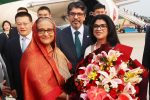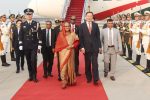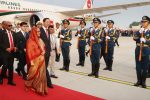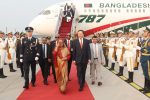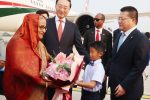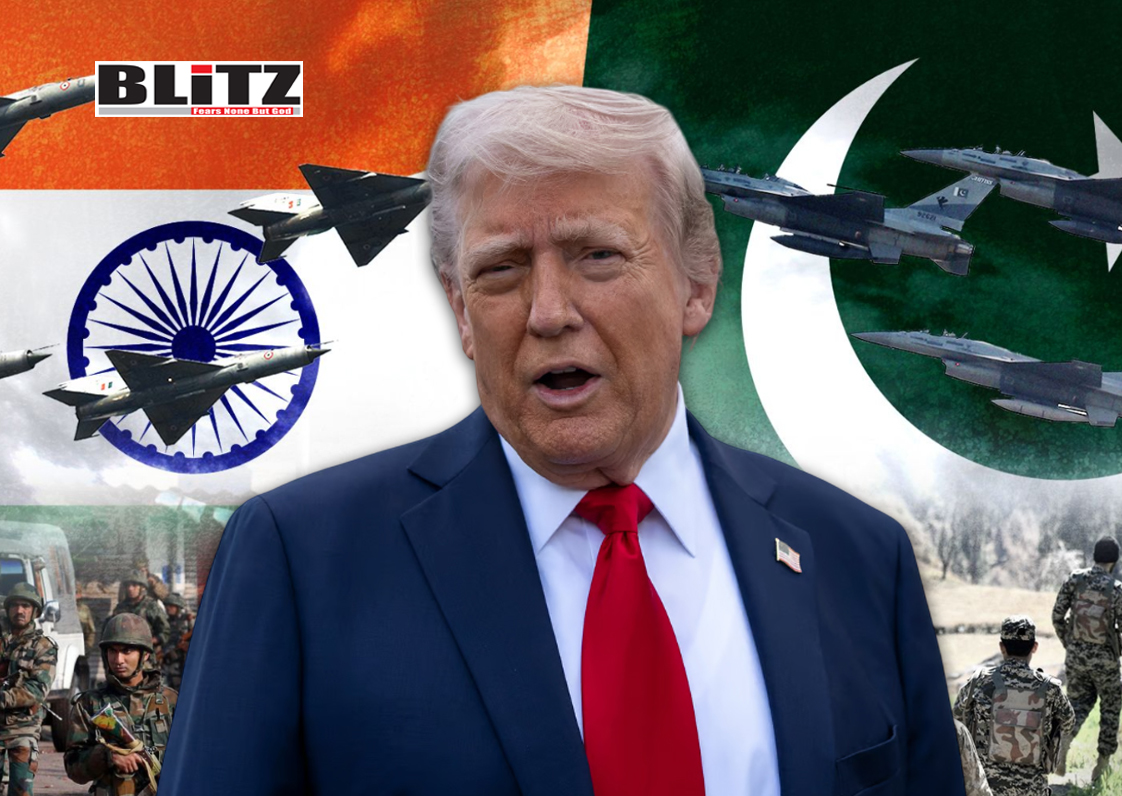China hosts high-level diplomatic visits from Pacific Island Nations and Bangladesh
- Update Time : Monday, July 8, 2024
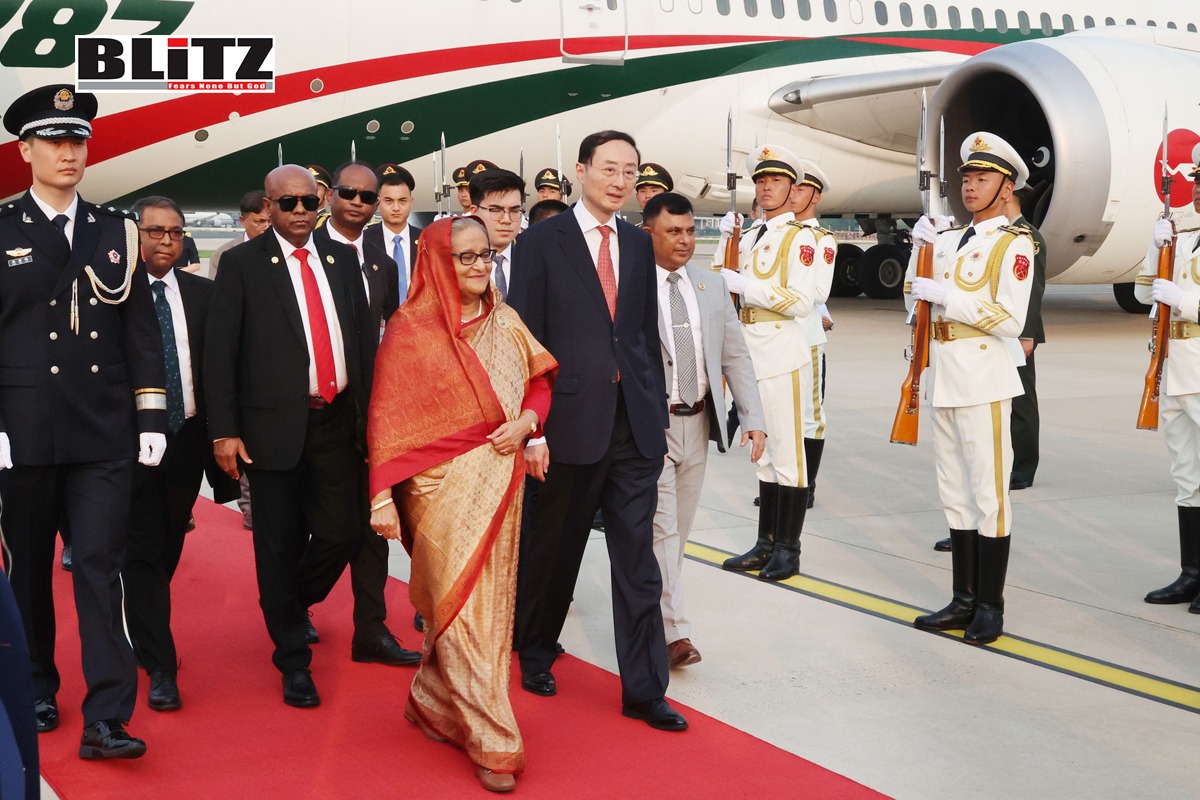
As the second half of 2024 begins, China is engaging in a series of high-level diplomatic visits, further solidifying its ties with the Global South. Leaders from Pacific Island countries (PICs) Vanuatu and Solomon Islands, along with Bangladesh, are scheduled to visit China, marking a significant chapter in Beijing’s whirlwind diplomacy.
At the invitation of Premier Li Qiang, Prime Minister Charlot Salwai of Vanuatu is visiting China from July 8 to 12. Prime Minister Jeremiah Manele of Solomon Islands will follow, visiting from July 9 to 15. Concurrently, Prime Minister Sheikh Hasina of Bangladesh is on a four-day official visit from July 8 to 11. These visits, announced by the Chinese Foreign Ministry, highlight the growing strategic partnerships between China and these nations.
Prime Minister Hasina’s visit is particularly notable as it aims to elevate Bangladesh-China relations from a “strategic partnership” to a “comprehensive strategic cooperative partnership.” During her stay, Hasina is expected to meet Chinese President Xi Jinping and hold a delegation-level bilateral meeting with Premier Li Qiang on July 10. This visit underscores the mutual commitment to deepening bilateral ties and exploring new avenues for cooperation.
Observers and analysts from both domestic and international arenas have praised these visits as evidence of the fruitful outcomes of China’s win-win cooperation strategy with the Global South. This approach defies Western criticism and underscores the potential for deeper collaboration. The high-level talks and engagements are expected to further unlock this potential, demonstrating mutual respect, understanding, and support.
Li Haidong, a professor at China Foreign Affairs University, emphasized that these visits starkly contrast with the West’s outdated Cold War mentality and confrontational approach. Similarly, Qian Feng, director of the research department at the National Strategy Institute at Tsinghua University, highlighted that these diplomatic efforts serve as a rebuttal to Western bullying tactics aimed at smearing or hindering the development of emerging economies.
The Australian Broadcasting Corporation (ABC) recently cited Baron Waqa, the new Pacific Islands Forum secretary-general, expressing concerns about China’s behavior in the region. The report accused China of pressuring Pacific nations to switch diplomatic recognition from Taiwan to China, a claim refuted by Chinese officials and scholars.
Qian Feng dismissed these accusations, stating that China’s cooperation with these countries is grounded in peaceful coexistence and equality. He argued that decisions to distance from Taiwan are natural and based on the recognition of one China. Chen Hong, executive director at the Asia Pacific Studies Centre of East China Normal University, reinforced this stance, describing the Taiwan issue as non-negotiable for China.
Experts argue that accepting Chinese aid is a sovereign decision made by Pacific nations. The economic difficulties faced by these countries are attributed to the global economic slowdown and Western interest rate hikes, not Chinese aid. China’s assistance, they argue, is provided on the principle of equal consultation, offering reasonable solutions and showcasing China’s role as a responsible major power.
Ahead of the upcoming visits, some Western media have revived the “debt trap” narrative, particularly regarding China’s role in the Pacific. For instance, the VOA highlighted that China is Vanuatu’s largest external creditor. However, Chinese observers have consistently refuted these claims, pointing out that former colonizers have not compensated Pacific nations for historical exploitation. In contrast, China’s infrastructure support is deemed essential and beneficial.
Chen Hong stressed that accusations of a Chinese “debt trap” ignore the mutual benefits and tangible improvements brought about by Chinese aid. These improvements span transportation, healthcare, and education, significantly enhancing the quality of life in recipient countries.
Prime Minister Hasina’s visit to China is seen as a momentous event with the potential to forge new paths of cooperation. Mohammad Saiyedul Islam, a senior research fellow at Daffodil International University Belt and Road Research Centre, emphasized that China is Bangladesh’s largest trading partner and the second-largest source of foreign investment. Crucially, China’s cooperation comes without political strings attached.
During her visit, Hasina is expected to discuss infrastructure projects, including roads, railways, ports, and energy supply improvements. These projects are anticipated to significantly enhance Bangladesh’s infrastructure, laying a solid foundation for economic development.
India, closely watching Sheikh Hasina’s visit, highlighted its timing soon after her attendance at Prime Minister Narendra Modi’s swearing-in ceremony. However, Qian Feng pointed out that this is Hasina’s fifth visit to China as prime minister and her first since her re-election. This frequency of high-level exchanges underscores the importance both nations place on their bilateral relations.
Indian media speculated that the visit would focus on increased Chinese investments under the Belt and Road Initiative (BRI), noting Bangladesh’s position as a major recipient of Chinese investment after Pakistan. However, Obaidul Quader, Bangladesh’s Minister of Transport and Roads, emphasized that while India is a political ally, China is crucial for Bangladesh’s development goals.
Bangladesh’s geographical location necessitates a balanced approach in its foreign policy, maintaining strong relations with both China and India. Despite Indian media questioning China’s intentions, the results of China’s BRI cooperation with Bangladesh and Pakistan speak for themselves. These achievements are the autonomous choices of sovereign nations, free from external imposition.
Qian Feng concluded that any country attempting to interfere with China’s cooperation with these nations does so with ulterior motives. The tangible benefits of China’s development aid and infrastructure projects are clear indicators of the positive outcomes of such cooperation.
The upcoming visits by leaders from Vanuatu, Solomon Islands, and Bangladesh to China mark a significant milestone in China’s diplomatic engagements. These high-level interactions are expected to reinforce mutual respect, deepen cooperation, and debunk Western narratives aimed at undermining China’s influence. As China continues to build strong partnerships with the Global South, the potential for mutual benefits and development remains vast and promising.
The Chinese approach to international relations, based on mutual respect and equality, contrasts sharply with Western criticisms and accusations. As nations in the Global South seek to navigate a complex global landscape, China’s model of cooperation offers an alternative that emphasizes shared growth and development. These diplomatic visits are not only a testament to China’s growing influence but also a sign of the shifting dynamics in global politics. With these high-level engagements, China is poised to further cement its role as a key player in fostering global development and cooperation.


